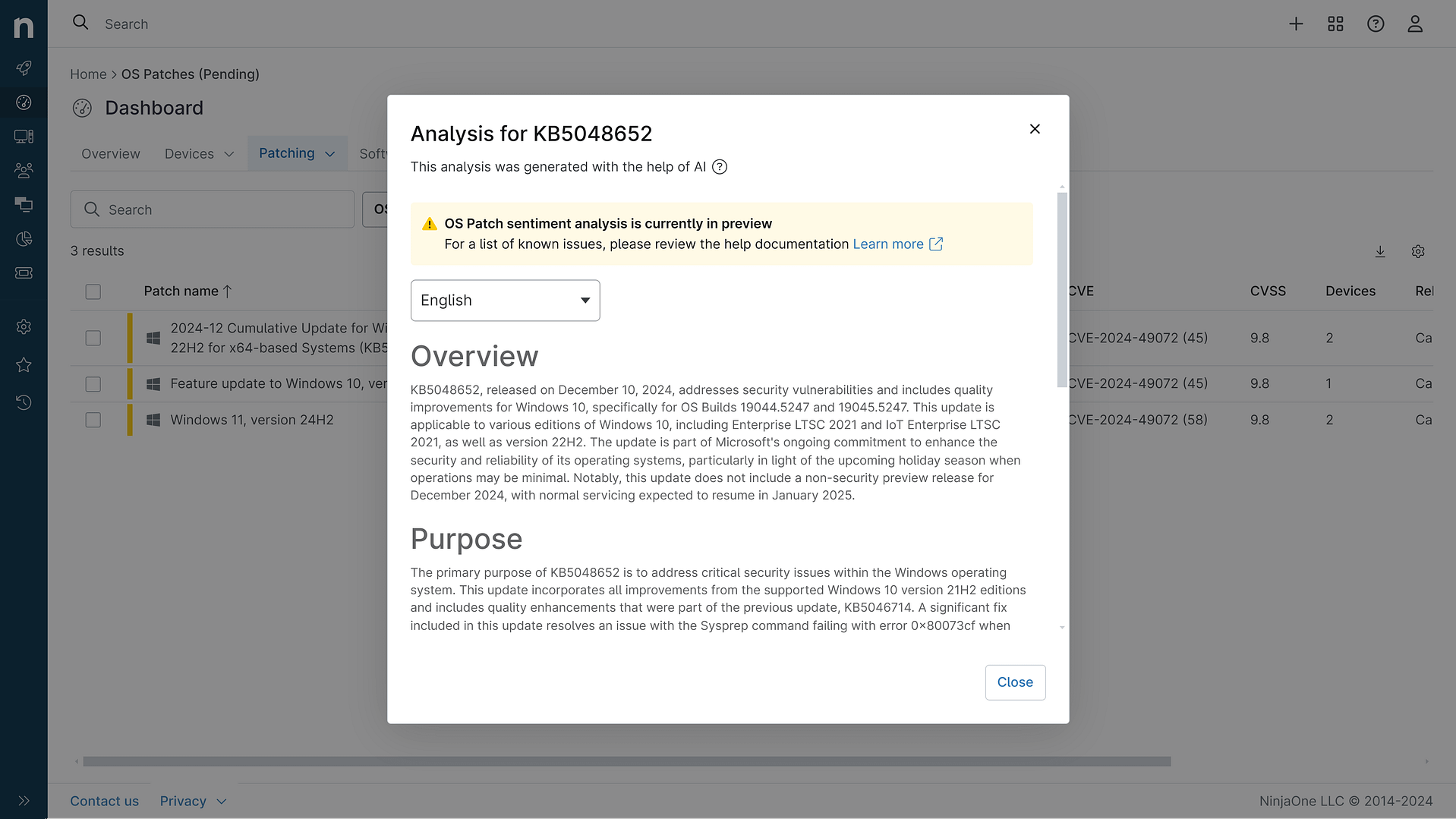KB5033947: Overview with user sentiment and feedback
Last Updated December 22, 2024
Probability of successful installation and continued operation of the machine
Overview
The KB5033947 update, released on January 9, 2024, is a Security Only Update for the .NET Framework versions 4.6.2, 4.7, 4.7.1, and 4.7.2. This update specifically targets Windows Embedded 7 Standard and Windows Server 2008 R2 SP1, as well as Windows Server 2008 SP2. It is important to note that these operating systems have reached the end of mainstream support and are now in extended security update (ESU) support. This means that only cumulative monthly security updates will be provided, and users are encouraged to apply this update as part of their regular maintenance routines to ensure continued security and functionality.
The update addresses several vulnerabilities, including a security feature bypass vulnerability (CVE-2024-0056), an elevation of privilege vulnerability (CVE-2024-0057), and a denial of service vulnerability (CVE-2024-21312). Additionally, it resolves a remote code execution vulnerability related to HTTP .NET remoting server channel chains. Users are advised to ensure that all prerequisite updates are installed before applying this update to avoid potential issues.
General Purpose
The primary purpose of KB5033947 is to enhance the security of the .NET Framework on supported operating systems. This update includes critical security improvements that address multiple vulnerabilities, thereby protecting systems from potential exploits. The vulnerabilities addressed include a security feature bypass, elevation of privilege, denial of service, and remote code execution vulnerabilities. By applying this update, users can mitigate risks associated with these vulnerabilities, ensuring that their systems remain secure and functional. It is recommended that users install the d3dcompiler_47.dll update prior to applying this patch, as it is a prerequisite for the successful installation of the .NET Framework updates.
General Sentiment
The general sentiment surrounding KB5033947 appears to be positive, with users acknowledging the importance of applying security updates to maintain system integrity. The update is seen as a necessary step for those still using Windows Embedded 7 Standard and Windows Server 2008, given their transition to extended support. Users appreciate the proactive measures taken by Microsoft to address critical vulnerabilities, especially in light of the end of mainstream support for these operating systems. However, some users express concerns about the ongoing reliance on outdated systems and the potential risks associated with using software that is no longer receiving regular updates. Overall, the sentiment leans towards support for the update, with an understanding of its necessity in the current security landscape.
Known Issues
There are currently no known issues associated with this update.
Disclaimer: We take measures to ensure that AI-generated content is of the highest possible quality, but we cannot guarantee its accuracy and recommend that users do their own independent research. Generated on 2024-12-22 06:42 AM
